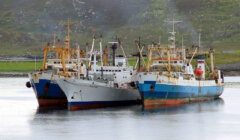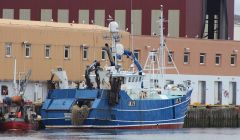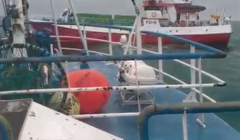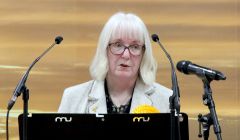Letters / Time to take back control
Ever since the UK joined the EU, our fishing communities have had to suffer the destruction and loss of over half of our fishing fleets, as our government followed directives from ICES in the EU resulting in many years of government imposed cuts in UK fishing quotas.
Many of the UK’s family-owned fishing vessels and businesses within the fishing industry were forced to sell off everything for what they could get to clear off the debts they had built up while trying to continue in business.
The result of this was our fishing grounds were emptied of around half of the UK fishing fleet.
Fishing companies from within the EU were then able to move in and buy up whatever UK quotas and fishing licences they could acquire, and thus, unhindered by fish quota restrictions from their own countries’ governments were then able to take advantage of the abundance of fish on the UK fishing grounds.
The unknown quantities and types of fish these EU vessels catch in our national waters, (unchecked by our own countries officialdom) is then taken back to the continent and landed in EU fish markets or is landed into the back of lorries and then shipped back to their home countries for further processing.
It is not just the families with vessels still surviving in our peripheral fishing communities in defiance of this victimization of our fishing industry that we suffer from, it’s also the shoreside companies involved in fish processing, engineering, grocery supplies and transport that also suffer.
Oversea vessels have nearly all of the necessary supplies required by their fishing fleets transported from their home countries.
This is evident from the increasing amount of dumped international rubbish our local fishing vessels find in their own fishing nets and take ashore to be disposed of in an environmentally friendly manner.
A lesson should have been learned from the island nations of Faeroe and Iceland, who have both shown how taking back control of the waters around their shores was for the benefit of their own people, who as a result of ousting foreign owned fleets of fishing vessels from their national waters then invested in fishing companies to harvest the abundance of seafood from around their Islands shores for the benefit of their own people.
Those companies have grown and have renewed their fishing vessels to enable them to land fish of the highest quality for further processing in their locally owned fish factories to then be exported worldwide.
We can only hope that under the leadership of the new first minister and a new Scottish cabinet in government will now have a better understanding of the value of Scotland’s fishery assets and will hopefully try to right the wrongs of the past decades that have been committed against the peripheral fishing communities of our Scottish nation.
William Polson
Whalsay











































































